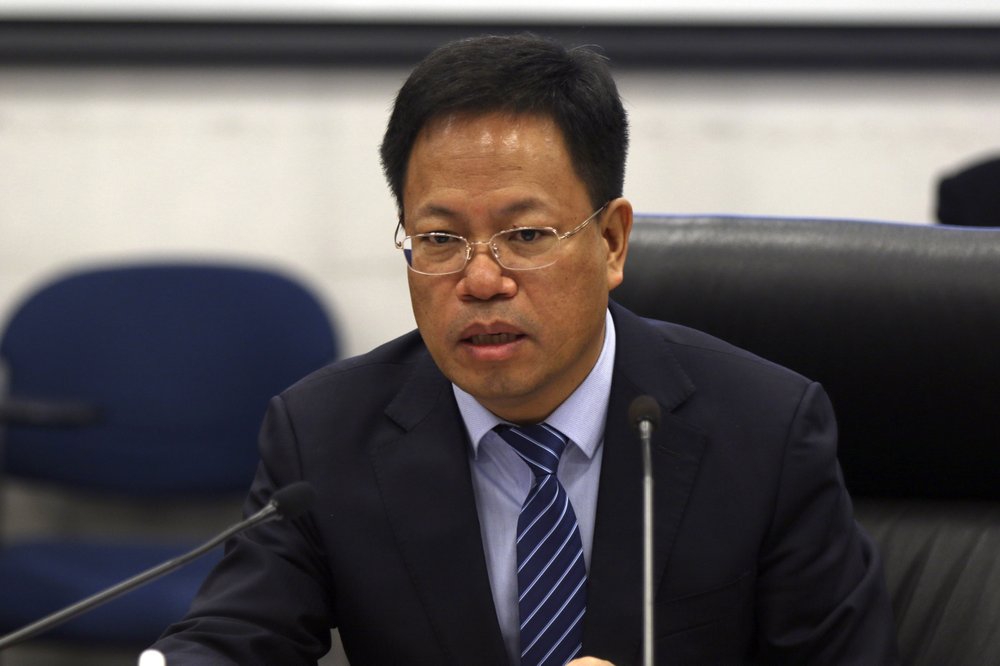

China on Thursday accused a scholar and outspoken critic of its policies toward Muslim minorities of fabricating charges that have helped bring sanctions against Chinese officials and companies operating in the Xinjiang region.
The ruling Communist Party’s deputy head of propaganda, Xu Guixiang, made the accusations against Adrian Zenz in the latest of a series of news conferences aimed at deflecting criticism over China’s detention of more than 1 million Uyghurs and other Muslims in reeducation camps.
Zenz has also used government documents to detail the mistreatment of Muslim women in such facilities and the coercive use of birth control that has radically cut the birthrate among such groups. He has also published on the alleged use of forced labor in Xinjiang’s cotton fields.
“Adrian Zenz and his so-called research reports are sure to be thrown on the dust heap of history and be despised by the 25 million people of various ethnicities in Xinjiang,” Xu said.
China’s Foreign Ministry and state media have said companies and individuals have petitioned to sue Zenz for economic and reputational damages, although the names of the plaintiffs haven’t been revealed and it isn’t clear how they will pursue the charges.
China first denied the existence of the camps but has since described them as centers to provide job training and reeducate those exposed to radical jihadist thinking. Officials deny all charges of human rights abuses in the northwestern region.
Xinjiang had been a hotbed of anti-government violence, but Beijing claims its massive security crackdown has brought peace in recent years.
Zenz is a German anthropologist and senior fellow at the U.S.-based Victims of Communism Memorial Foundation that has been sharply critical of China’s human rights record and its policies in Xinjiang and Tibet.
In a telephone call from Minnesota, Zenz said the Chinese government campaign against him “smacks of desperation.”
“The attacks on the Uyghur witnesses have become more and more nasty. It’s especially disgusting,” Zenz said.
Zenz said the economic pressure of sanctions, along with the designation of China’s campaign as genocide by some Western countries and growing calls for a boycott of the 2022 Winter Olympics to be held in China, have led to increased attacks on his character.
One video displayed during Xu’s news conference showed two former husbands of a Uyghur woman who has spoken spoke to media about her abuse in detention. One of the men called her an obscene name and said she had “bad moral quality.”
Another video showed men alleging another woman who has spoken to the foreign media about Xinjiang had perpetrated a bank loan scheme.
“You are a lousy person,” one man said. Another said the woman had been an unfaithful spouse.
Zenz says the vast majority of his work is based on documents produced by the Chinese government such as propaganda videos, local government websites and company notices.
“I used their propaganda against them, and read between the lines,” Zenz said.